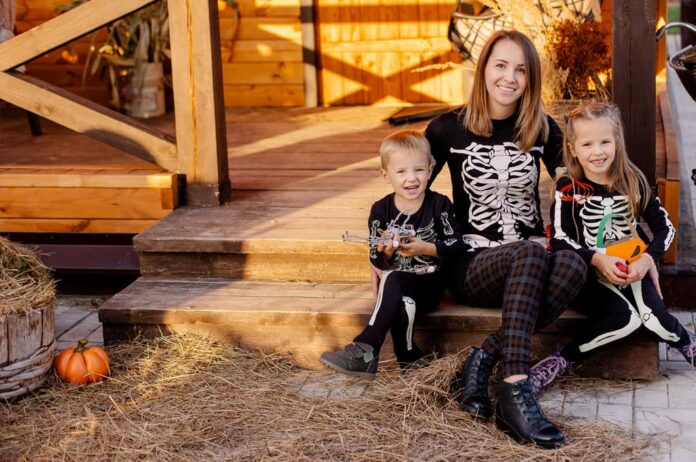How to help your child survive (and thrive) uncertain times

Parenting is a task that is already fraught with a seemingly endless amount of uncertainty. Will my child get picked for the team? Will they be okay on the bus? What if they don’t like their teacher? Throw in the changes in our daily routines due to the ever-moving target of Covid19, and for many families, the level of uncertainty in their home has never felt higher.
Uncertainty, not-knowing, is hard. Our brains like consistency and predictability and busy families thrive off a solid routine and schedule. We also tend to project worse-case scenarios into ‘not-knowing,’ which can produce feelings of worry, fear, and anxiety. It can be hard enough as adults, with fully developed brains, to have the capacity to navigate change and tolerate uncertainty, but how do we help our children tolerate ‘not knowing?’ What are we supposed to tell them when we don’t even know the answer to their questions sometimes?
Families have all had to develop a certain amount of resourcefulness this past year to navigate the uncertainty and changes in daily life due Covid19. Now, with the looming threat of the Covid19 Delta variant once again threatening our schedules and sense of predictability, safety, and security many families are once reevaluating the tools to their ‘uncertainty’ toolbelt.
Here are some strategies for helping your child survive and thrive during uncertain times.
1) Validate their feelings
It can be very tempting to respond to your kids’ fear or worry with something like, ‘it’s okay, there’s nothing to worry about,” or, “everything’s fine.” Instead of ‘deny and dismiss’ try ‘reflect and connect’ (Seigel and Bryson, 2011). This might sound something like, ‘it is hard to not know. That can make me feel worried too sometimes,” or, “I can tell you’re feeling scared, and that makes sense since…” By helping your child put their feelings into words and validating them, you’re helping your child to feel heard, understood, and emotionally safe, which naturally soothes and integrates big feelings. After kids feel heard and validated, they are much more likely to be able to engage in a more logical conversation or problem solve a situation.
2) Remind them of their strengths/resources/things they have already overcome
Instead of telling your kids it’s going to be fine, it can be more helpful and empowering to remind kids of times in the past when they have felt similar (scared, worried, unsure ect.) and were able to cope well. An example could be, “remember when you weren’t sure when you’d see your friends last year? I love how you were able to still find creative ways to connect with them.” Or, “Good thing you’re so brave! Remember when Grandma was sick and how scary that felt? You were so brave when you didn’t know if things were going to be okay.” Responses like these help kids to remind themselves of the courage and strength they already possess, which can help build self-confidence and promote positive coping and resilience.
3) Model the capacity to be flexible
Take advantage of small moments such as forgetting your grocery list to model the ability to be ‘okay,’ even when plans change. You might narrate your process out loud for your children to help them internalize positive self-talk and a growth-mindset. For example, “Oh, looks like I forgot my grocery list. That’s frustrating, I’m not sure that I’ll be able to remember everything. But that’s okay, everyone makes mistakes sometimes and it’s kind of fun to challenge my brain. Let’s see how close I can get!”
4) Keep as many rituals and routines as possible
Maybe this is a Sunday walk around the same spot in your neighborhood or Friday night pizza night as a family. Pick a routine or two that you know you can control and follow through on, despite changes in other parts of the day. Having these anchor points will help kids feel regulated and will give them something predictable to look forward to even if the rest of their schedule has a lot of question marks.
One of my favorite parenting mantras is a quote from Tim Elmore, who said, “prepare your child for the past, instead of the path for the child.” Although parents are often just as helpless as their children when it comes to the unpredictability and changes in routine that have come with Covid19, this can be a great reminder that our task as parents isn’t to keep children from experiencing adversity, but to help children develop the tools needed to cope well with adversity. The parenting tools you develop during this time will serve your child and family long after the pandemic ends and will give your child the confidence they need to survive and thrive amidst whatever challenges come their way.
Sigel, D. J. & Bryson, T. P. (2001). The whole brain child: 12 revolutionary strategies to nurture your child’s developing mind.























